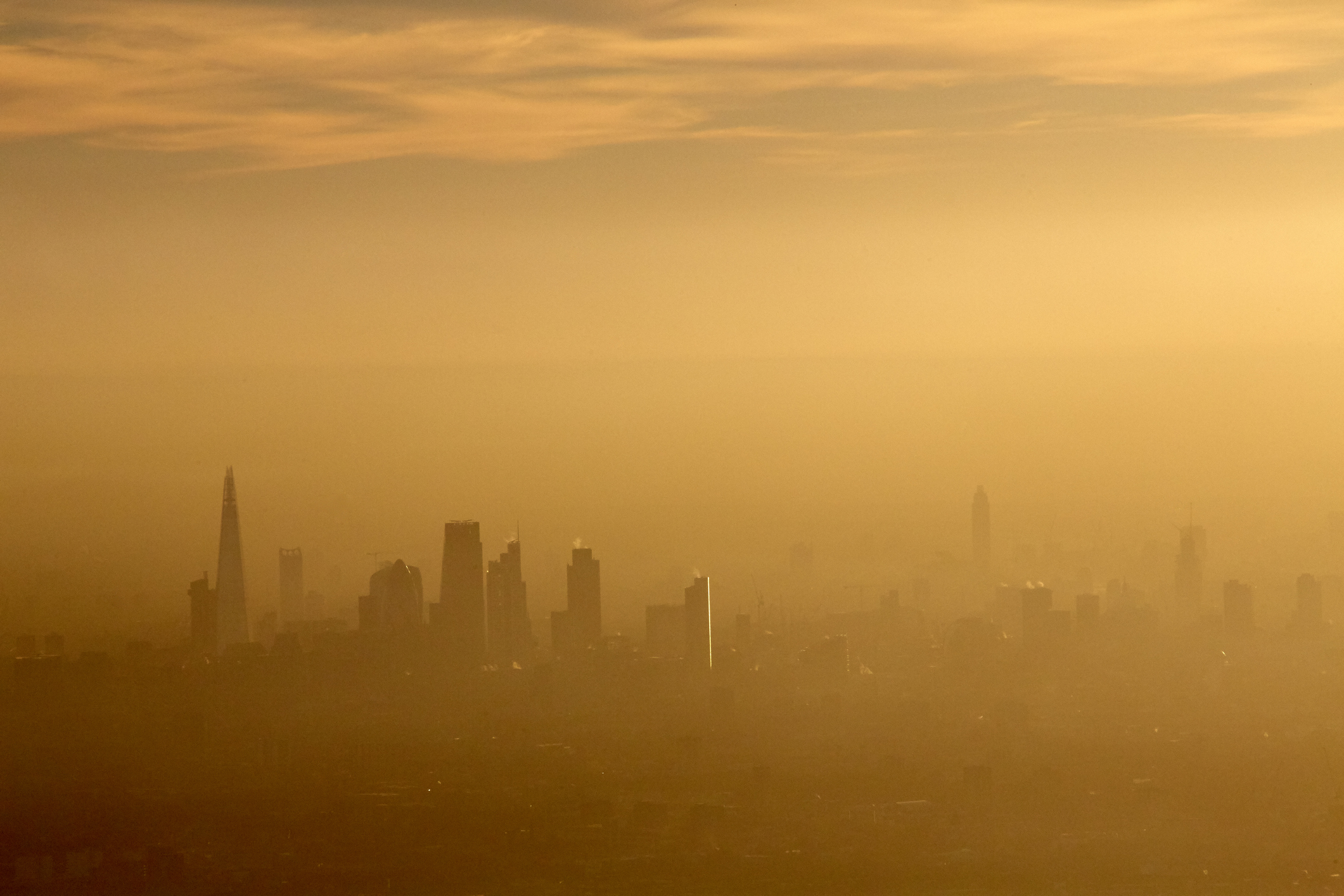Air pollution may be increasing antibiotic resistance, new research suggests


A free daily email with the biggest news stories of the day – and the best features from TheWeek.com
You are now subscribed
Your newsletter sign-up was successful
Worsening air pollution could be fueling the evolution of superbugs, or antibiotic-resistant bacteria, according to a paper published in The Lancet Planetary Health. Researchers found "significant correlations" between antibiotic resistance and the concentration of air pollutants known as PM 2.5, The Washington Post reported.
The study looked at data from 116 countries from 2000 to 2018 and found that "correlations between PM 2.5 and antibiotic resistance are consistent across the world in most antibiotic-resistant bacteria, and that the correlations have strengthened over time." Scientists estimated that antibiotic resistance stemming from air pollution caused around 480,000 premature deaths in 2018, an amount they posit will increase by over 50% by 2050.
PM 2.5 pollution is incredibly small, approximately "1/20th of a width of a human hair," per CNN. Because of its size, it "can travel past your body's usual defenses" and "can get stuck in your lungs or go into your bloodstream." The new research suggests that pollution has larger health implications than previously thought. "Antibiotic resistance and air pollution are each in their own right among the greatest threats to global health," said Hong Chen, co-author of the study. "Until now, we didn't have a clear picture of the possible links between the two, but this work suggests the benefits of controlling air pollution could be twofold."
The Week
Escape your echo chamber. Get the facts behind the news, plus analysis from multiple perspectives.

Sign up for The Week's Free Newsletters
From our morning news briefing to a weekly Good News Newsletter, get the best of The Week delivered directly to your inbox.
From our morning news briefing to a weekly Good News Newsletter, get the best of The Week delivered directly to your inbox.
However, more research needs to be done because correlation does not equal causation. "It's still possible that there are confounding factors at work, and that these are involved in the causation of a country's level of antibiotic resistance," Kevin McConway, emeritus professor of applied statistics at the Open University, told Politico. The reason for the correlation is also not explained in the study.
Air pollution is expected to get worse over time due to climate change. "The findings have substantial policy and environmental implications by presenting a new pathway to combat clinical antibiotic resistance by controlling environmental pollution," the study's authors wrote.
A free daily email with the biggest news stories of the day – and the best features from TheWeek.com
Devika Rao has worked as a staff writer at The Week since 2022, covering science, the environment, climate and business. She previously worked as a policy associate for a nonprofit organization advocating for environmental action from a business perspective.
-
 5 cinematic cartoons about Bezos betting big on 'Melania'
5 cinematic cartoons about Bezos betting big on 'Melania'Cartoons Artists take on a girlboss, a fetching newspaper, and more
-
 The fall of the generals: China’s military purge
The fall of the generals: China’s military purgeIn the Spotlight Xi Jinping’s extraordinary removal of senior general proves that no-one is safe from anti-corruption drive that has investigated millions
-
 Why the Gorton and Denton by-election is a ‘Frankenstein’s monster’
Why the Gorton and Denton by-election is a ‘Frankenstein’s monster’Talking Point Reform and the Greens have the Labour seat in their sights, but the constituency’s complex demographics make messaging tricky
-
 Metal-based compounds may be the future of antibiotics
Metal-based compounds may be the future of antibioticsUnder the radar Robots can help develop them
-
 A Nipah virus outbreak in India has brought back Covid-era surveillance
A Nipah virus outbreak in India has brought back Covid-era surveillanceUnder the radar The disease can spread through animals and humans
-
 Trump HHS slashes advised child vaccinations
Trump HHS slashes advised child vaccinationsSpeed Read In a widely condemned move, the CDC will now recommend that children get vaccinated against 11 communicable diseases, not 17
-
 Deaths of children under 5 have gone up for the first time this century
Deaths of children under 5 have gone up for the first time this centuryUnder the radar Poor funding is the culprit
-
 A fentanyl vaccine may be on the horizon
A fentanyl vaccine may be on the horizonUnder the radar Taking a serious jab at the opioid epidemic
-
 Health: Will Kennedy dismantle U.S. immunization policy?
Health: Will Kennedy dismantle U.S. immunization policy?Feature ‘America’s vaccine playbook is being rewritten by people who don’t believe in them’
-
 More adults are dying before the age of 65
More adults are dying before the age of 65Under the radar The phenomenon is more pronounced in Black and low-income populations
-
 Ultra-processed America
Ultra-processed AmericaFeature Highly processed foods make up most of our diet. Is that so bad?
